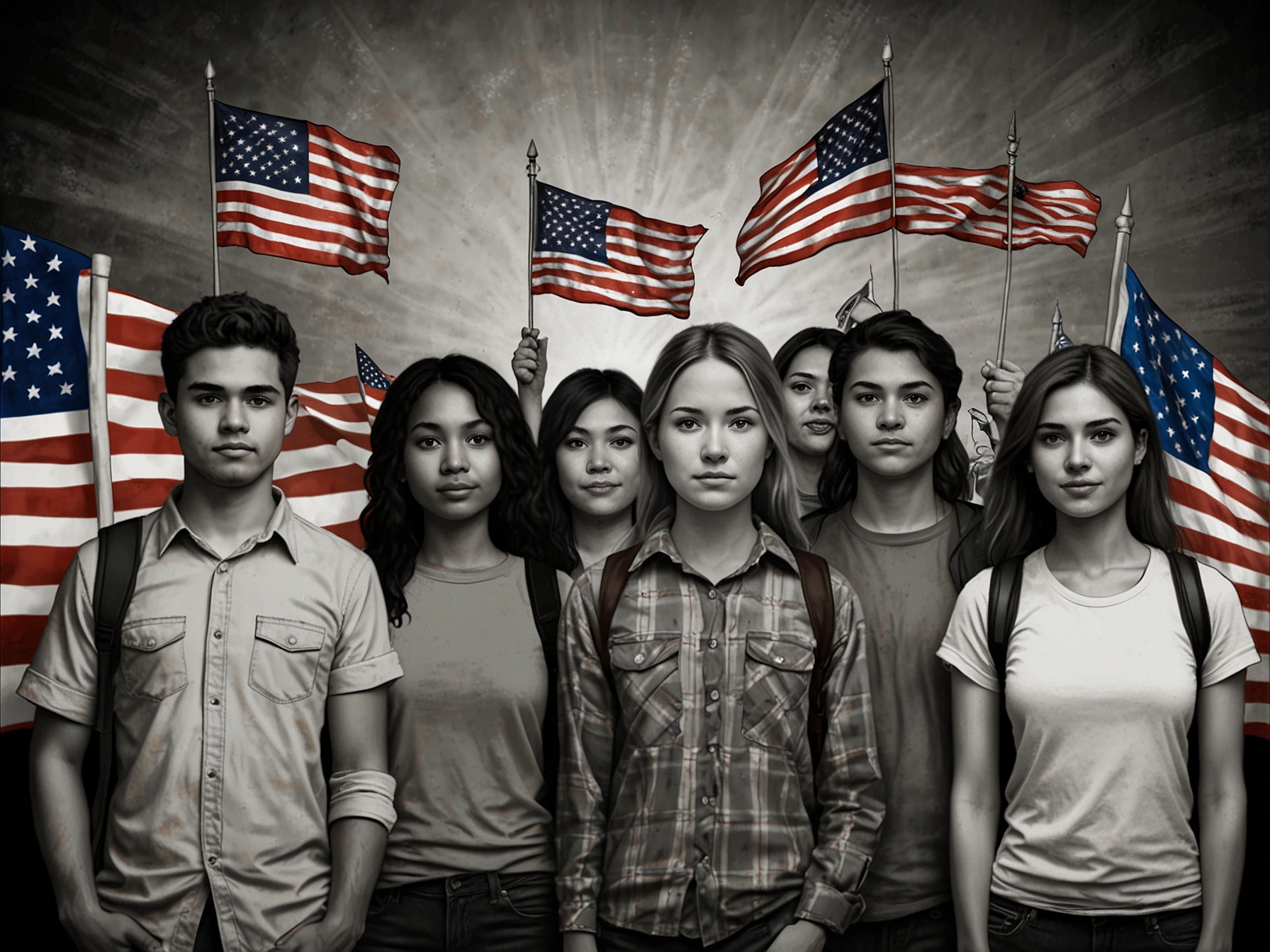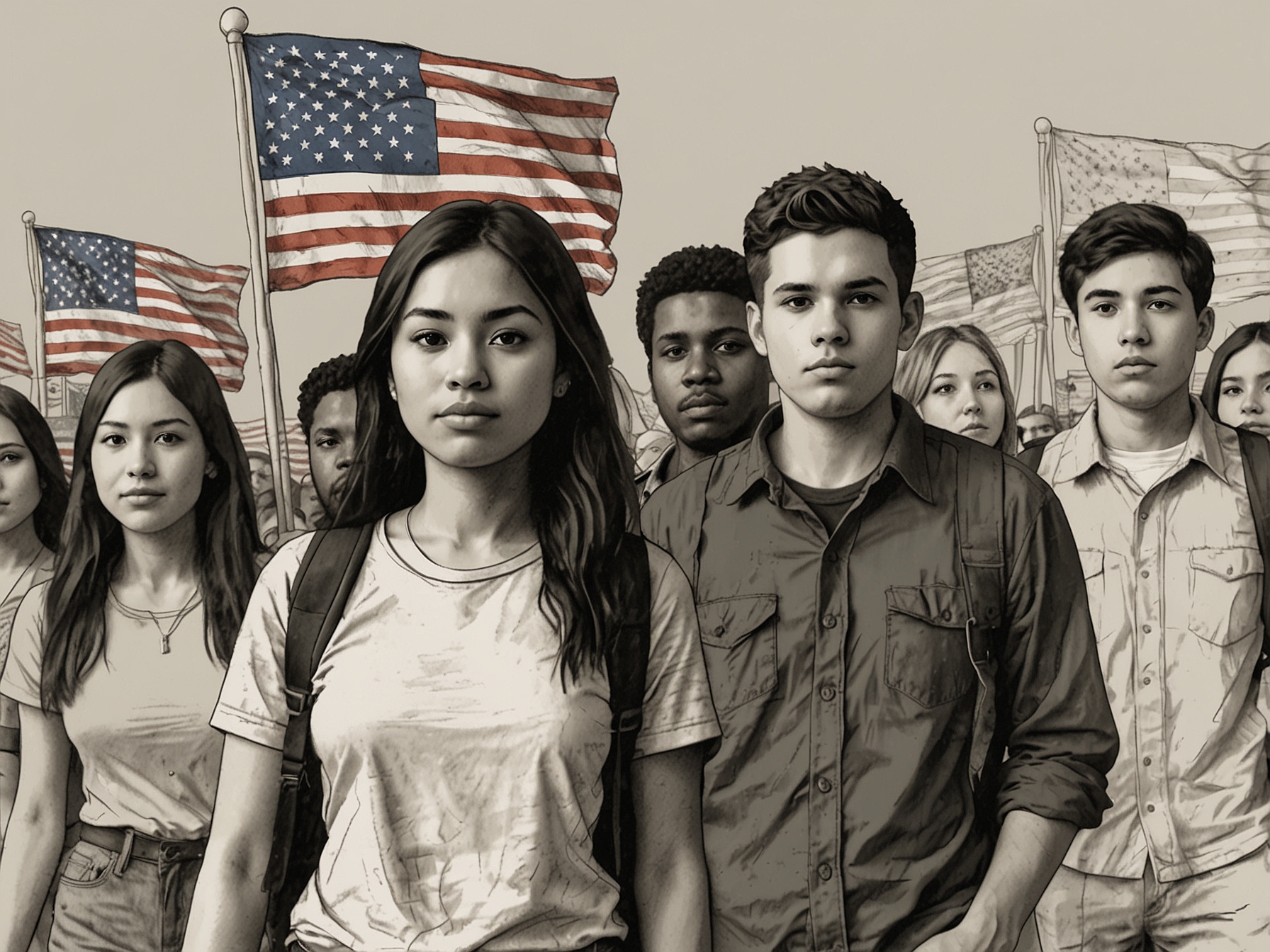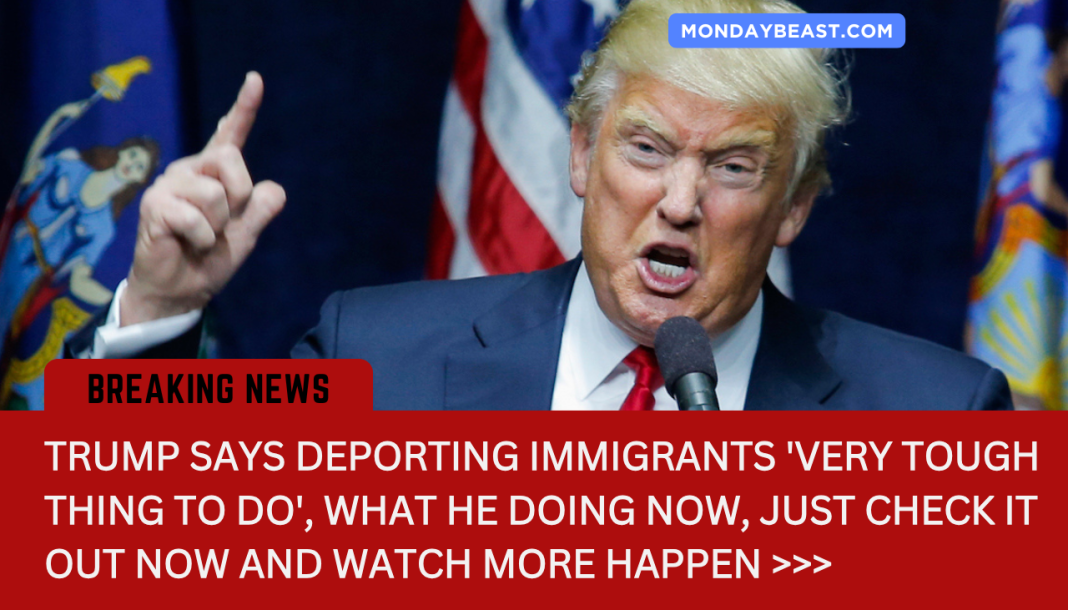In a recent interview, President-elect Donald Trump made waves with his remarks on immigration. He portrayed a mixed message as he addressed the lives of undocumented immigrants brought to the U.S. as children, often referred to as Dreamers. This revelation sheds light on a complicated issue that affects millions.
Trump stated, “We have to do something about the Dreamers… these are people that have been brought here at a very young age.” His stance signals an openness that may seem surprising given his history. Can this really suggest a shift in his administration’s approach to immigration?

The term “Dreamers” resonates with many Americans. It encapsulates hope, dreams, and the pursuit of opportunities in a land they often view as home. Many of these individuals have lived here for years and may struggle with ties to a homeland they barely know.
However, Trump maintained that his administration’s priority will focus on deporting migrants with criminal records. He emphasized the need for enforcing laws that he feels have been neglected. At the same time, he noted that working with Democrats could forge a path for Dreamers, which raises critical questions.
Challenging conversations lie ahead. Trump’s administration may face pushback from Democrats who are wary of mass deportations. As those debates emerge, one can only ponder whether strong sentiments among immigrant communities will push for better protections.

Additionally, his comments about families with mixed immigration status brought up another crucial aspect. The president-elect expressed reluctance to break up families, stating that it complicates the process. It brings into focus the human element—what does it mean for families who may be torn apart?
Throughout his first term, Trump’s administration often appeared fixated on strict immigration policies, including attempts to end Deferred Action for Childhood Arrivals (DACA). His earlier efforts were heavily criticized and met with legal challenges. Given that history, should high hopes be held for a more lenient approach for Dreamers?
Certainly, many Dreamers fear the prospect of full-on deportation policies. They lived through previous administrations’ conflicting messages and remain uncertain about their future. Will they truly find refuge under Trump’s suggestions?

Trump reiterated his commitment to ending birthright citizenship as part of his immigration reform agenda. This notion stands against what many see as a fundamental American principle laid out in the 14th Amendment. What will be the lasting impact of such proposals?
As these discussions intensify post-inauguration, we must prepare for an array of responses from various sectors. Politicians, activists, and, importantly, those affected will engage in extensive dialogue. Will they find common ground?
Ultimately, this situation encourages a severe reflection on the nation’s immigration policies. The complexities surrounding these issues leave room for both challenge and negotiation. Only time will reveal how these complex discussions unfold and whether substantive change will emerge.
In relation to his potential actions on January 6 defendants, Trump’s remarks hinted at a willingness to pardon. He mentioned his desire to offer relief to those entangled in the aftermath of that turbulent day. This raises questions about justice and accountability.
Is it possible that forgiveness might overshadow the need for understanding? Trump’s approach weaves through numerous political intricacies, particularly regarding members of Congress and investigations into behaviors surrounding the January 6 events. The suggestion that some could face jail time strikes a nerve.
When will America foster true accountability? In navigating these multifaceted waters, the way forward needs to reflect broader national sentiment. Divided opinions on immigration policy and governance highlight the necessity for constructive discourse.
Can we foster unity amidst discord? As Trump prepares to assume office again, we remain watchful. His administration’s future dealings with immigration and justice will shape the national narrative.
It is a delicate balance—but is there hope for a path that recognizes both laws and humanity?




